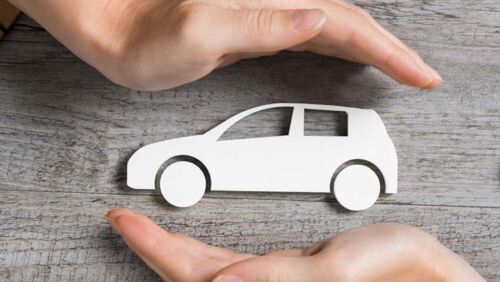How to get out of a speeding fine
By Toby Hagon
Speeding fines are big business for state governments around Australia.
Last financial year NSW reaped $79 million from almost 230,000 speeding offences.
Big bickies, although nothing compared with Victoria, which is budgeting for a 44% increase in speeding offences for the 2020-2021 financial year taking total revenue collected from cameras to a whopping $475 million.
That's around $73 for every single person in Victoria, licensed or not. If Victorians don't speed, the state budget is in more strife!
Little wonder many people are keen to explore ways of not paying the fine and not having demerit points applied, something more relevant given double demerit points are applied over holiday periods in NSW, Queensland, Western Australia and the ACT.
But what's the best way to get out of a speeding fine?
The first option is to ask for a review.
It may sound silly, but in many instances it works, especially for minor offences.
In NSW, for example, if you were caught at less than 20km/h over the limit and have had a clean driving record for 10 years you're a good chance to get off simply by filling out the online forms and explaining why you think you should get a caution as opposed to a fine.
There are exceptions: if the fine was issued in a school zone, for example, then that won't work. And for heavy vehicles cautions are also not considered.
But even if you don't meet the criteria it's sometimes worth requesting a review as your first port of call.
In Victoria, it seems they like to make those fines stick.
Victoria Police will consider a review if you were caught for less than 10km/h over the limit and have had no warning or infringements for two years.
Police say they consider things such as where the fine was issued, the driver's record and even weather conditions and time of day.
In Queensland, police say there are "no provisions under Queensland legislation to offer leniency based on a good driving record, interstate 'gold' licences or because you've never had a ticket before".
That said, there are instances where police may apply leniency, such as if there was a medical emergency. Again, there's no harm in filling out the online "infringement enquiry".
If that fails then the other option is to request the infringement be heard in court.
Once in court there are two broad options: disputing that you committed the offence (pleading not guilty) or admitting you committed the offence (pleading guilty) and asking the court for leniency.
In the first instance you'll need a strong argument and evidence as to why you are innocent.
Police and camera operators must adhere to strict checks and regulations and they know how the court process works, so almost religiously ensure the boxes are ticked.
Sydney-based traffic and criminal lawyer Chris Kalpage says the onus is on the prosecution to prove the offence but that the authorities are well versed.
"With speed cameras all they have to do is tender the necessary documentation to show it has been calibrated," he says.
But mistakes and oversights can happen.
Unless you're familiar with the court process it's worth getting a lawyer, preferably one with experience in fighting infringements and how magistrates are likely to consider your argument.
And there will likely be additional material required in formulating your case, whether it's references, expert witnesses or evidence as to why you did not commit the offence.
The other option is to admit you committed the offence and request no conviction, often known as a Section 10.
Arguments relied on for a Section 10 often involve your driving record and may also lean on character references and your need for a licence; having to take your sick mother for hospital check-ups is likely to be viewed more favourably than requiring a licence for a weekly stock-up your liquor cabinet.
Kalpage says every case is different and the defence "has to be tailor-made to the client".
Your lawyer may ask you to take part in an offender's rehabilitation program to show you have learnt from your mistake.
Whether the magistrate lets you off completely or imposes a lesser penalty will rely on how convincing your argument was, the magistrate and the circumstances of the alleged offence, among other factors.
No guarantees, then, and by the time you add in your legal representation the costs are likely to run into thousands of dollars.
And as well as court costs (usually around $100) there's often an offender or victims' levy, which may be a couple of hundred dollars.
So requesting leniency in the courts is not something you'd do if your goal is to reduce the financial penalty. It's something you'd do if you do not want to (or cannot afford to) accumulate demerit points that could ultimately leave you with a cancelled licence.
Good luck!
Get stories like this in our newsletters.



